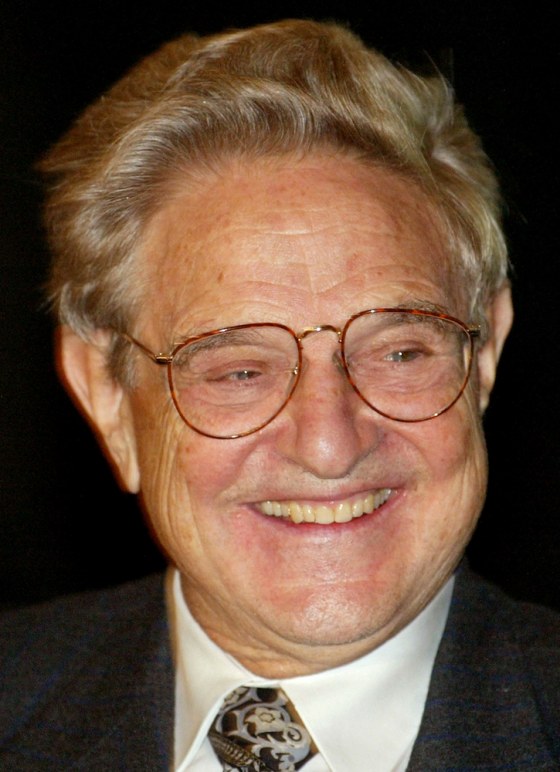The Republican National Committee and President Bush’s campaign opened a new field of fire Wednesday on Democratic “soft money” groups that are raising millions of dollars to air anti-Bush ads and do grass-roots organizing to defeat him.
In an unprecedented move, the RNC and the Bush campaign filed a complaint with the Federal Election Commission (FEC) accusing anti-Bush Democratic “527” groups such as the Media Fund and America Coming Together (ACT) of a conspiracy to violate federal election laws.
Bold legal gambit
The Republicans will ask the FEC to immediately dismiss the complaint, a legal gambit which would allow the Republicans to immediately go before a federal judge and seek an order blocking the 527 groups from using the unlimited contributions on which they now rely for the funding.
The 527 groups are so named because they are organized under section 527 of the Internal Revenue Code.
Bush campaign counsel Ben Ginsberg said the FEC had a history of “not being able to deal with complex enforcement matters, especially one as unprecedented as this, in a timely fashion.”
That, he argued, was why a federal judge needed to restrain the Democratic groups.
Ginsberg called Democratic presidential candidate John Kerry “the largest beneficiary of illegal soft money from wealthy special interests since Watergate and the campaign finance reforms that were put in place at that time.”
'A fool's errand'
Arguing that the money ACT and similar Democratic groups are raising is entirely legal, ACT counsel Bob Bauer called the Republican legal stratagem “a fool’s errand and completely counterproductive” since it would only spur increased contributions to the Democratic 527 groups.
Bauer also said the likelihood of a federal judge taking action in the case was “virtually zero.”
Donors to the Democratic 527 groups include billionaire George Soros, Real Networks CEO Robert Glaser, telecom firm Bell South, and Peter Lewis, head of Progressive Insurance Corp.
Soros has given $6.5 million to such groups so far in the 2004 campaign.
Sarah Leonard, a spokeswoman for America Coming Together and the Media Fund, called the Bush-RNC complaint “legal and political fiction. These are vintage Republican techniques. They have nothing to do with the law or the facts and everything to do with a White House that is desperate to silence the voices of Americans who want change.”
Ginsberg accused the Kerry campaign and the Media Fund of coordinating their TV advertising purchases, so that when Kerry did not run ads in a specific media market in a battleground state, the Media Fund did.
Jim Jordan's role
And Ginsberg pointed to Media Fund and ACT spokesman Jim Jordan, former campaign manager for Kerry who was replaced last November. “How can he not be using or conveying information he learned while managing the Kerry for president campaign up until November of 2003? What’s he going to do, claim amnesia?”
Federal election law limits former campaign officials in the work they can do for outside political groups during the same political cycle in which they worked for a candidate.
“The fact is Jim doesn’t have any knowledge of Kerry campaign general election strategy,” Leonard said. And Bauer said the law only bars a former campaign official from bringing "material information" from the campaign to his new employer to help shape an advertising campaign. Jordan, he said, is not using information from his term as Kerry's campaign manager.
The six-member, bipartisan FEC is scheduled to vote on May 13 on new regulations to restrict fund-raising by the 527 groups.
With the unlimited “soft money” contributions to national political parties banned by the 2002 Bipartisan Campaign Reform Act (BCRA, also known as the McCain-Feingold law), Democrats are counting on the 527 groups to help offset the Republicans’ big advantage in the ability to raise “hard money,” the limited contributions that go to elect a specific candidate.
Disparity in 'hard money'
Using hard money contributions in increments of $2,000 per donor, the Bush campaign had been able to raise more than $158 million by the end of February, while Kerry campaign raised more than $40 million in hard money.
Bush had more than $110 million in cash left while Kerry, having battled his way through the Democratic primaries, had only $2.3 million.
Thus the Democratic groups such as the Media Fund are essential to Kerry’s viability since they will help pay the cost of broadcasting anti-Bush TV and radio ads from now until the Democratic convention in late July.
One of the sponsors of the Campaign Reform Act, Sen. John McCain, R- Ariz., said two weeks ago that if Congress and the FEC allow the 527 groups “to function outside the campaign finance law of 1974, then I think we will be opening the door to a flood of unregulated soft money and we will have a return to the bad old days.”
